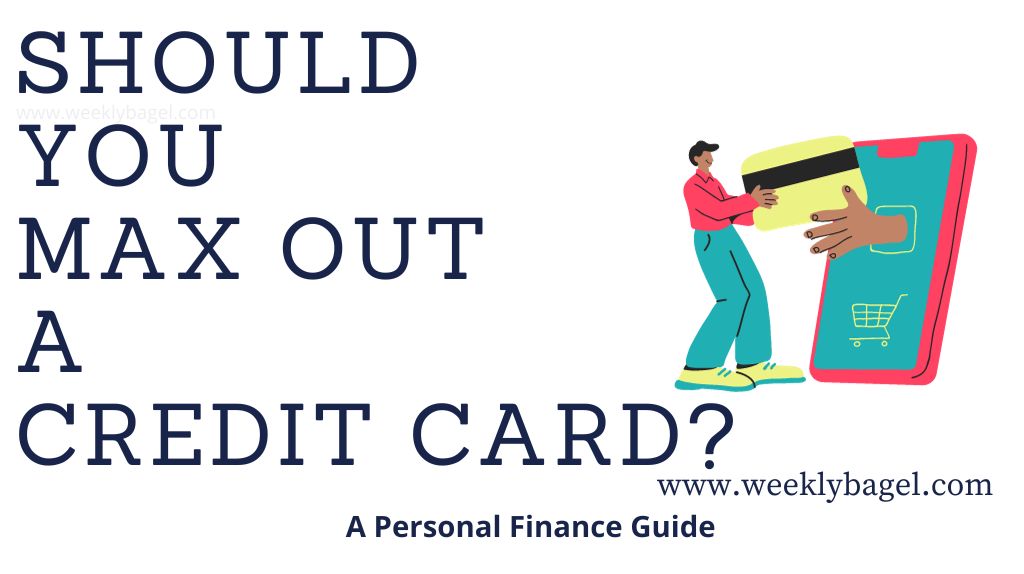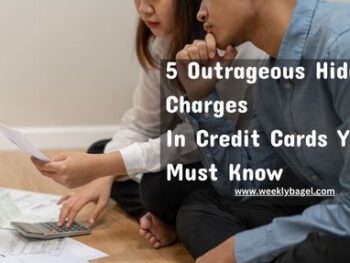
When applying for a credit card, one of the things credit companies fail to explain to customers is what happens when you max out a credit card. A lot of things can affect your credit. One of the notable ones is a maxed out credit card. Maxing out your credit card affect your credit score negatively.
What does it really mean to max out credit card, my dear reader?
Maxing out a credit card means you have spent the maximum credit limit on the card. Every credit card has a credit limit or borrowing limit. As soon as your credit limit is reached, you are expected to pay it off quickly. Or at least, lower your debt below the credit limit.
Otherwise, a derogatory remark would be made on your credit report which will drop your credit score. This is because overspending without paying back is seen as a red flag. I know this sounds quite contrary to the reason for having a credit card, since you are expected to spend.
But, it is how credit cards work. Although you are allowed to spend the money on a credit card, there are consequences to maxing out your credit card. Here is what to know.
What Happens When You Max Out Your Credit Card
A max out credit card is one of things which affects your credit score negatively. This is because your credit card company reports to a credit bureau about a maxed-out credit card. It happens especially when it is not being paid off quickly.
As a result, the negative reports on your credit history will affect your credit score. Here are other effects of a max out on a credit card:
- Increase in interest rate because you are at your maximum credit card debt.
- Declined transaction because you have reached your credit limit.
- Late payment fees whenever you miss payment on your debt.
- Your maxed out credit card may appear as a negative item on your credit history.
- Your monthly minimum payment may increase, since your debt is high now.
You could read an elaborate version of these on What Happens When You Max Out Your Credit Card article. I discussed its impacts on your overall financial health. It is a good read.
Unless you can afford to pay it back as soon as possible, these effects of maxing out a credit card are not worth it at all. If you are struggling to pay other debts, consider not utilizing 100% of your credit card. You could read What Happens If You Stop Paying Your Credit Card Debt, for measures taken by credit card companies for people who max out a credit card and could not pay the debt.
What Should You Keep Your Credit Card Balance At
The ideal credit card utilization is 30% or less. This is according to an Experian article on Credit Utilization Rate. Spending below 30% of your credit limit, shows you are financially responsible and able to manage your credit card expenditures.
Here is a more detailed elaboration on the credit utilization rate.
Let us say your credit card has a borrowing limit (credit limit) of $3000. Spending at 30% means you are spending $3000 multiplied by 0.3, which sets your expenditure at $900. Please note your debt will definitely be higher than $900, since interest rate on purchases are charged by every credit card.
Hence, the importance of spending below 30%. If you are using 80% of the above credit limit, that is $2400 plus interest and other charges. For any struggling working class adult, this is already a lot to pay off.
So, what happens if you go over 80% of your credit limit though?
The consequences discussed above earlier. If you could pay off your balance quickly enough to avoid a negative report, you can spend more than 30% then. However, try not to spend more than 30% of your borrowing limit when you are struggling to make ends meet. It is really a very bad idea.
Besides, I have always preached on my blog about not using a credit card for anything other than improving your credit score. This is especially, if you are struggling to make ends meet. This decision will save you a lot of money in the long run.
Paying Off A Maxed Credit Card
To pay off a maxed out credit card, you have to call your credit card company to discuss payment method. This is because the minimum monthly payment tend to change, whenever a credit card is maxed out. What do I mean by this?
Let us say your credit limit is $5000 and your current monthly payment is $45 on a $1700 credit card debt. Maxing such a credit card, will increase your credit debt. As a result, your minimum monthly payment toward the debt is increase too.
Now, a credit card company will not explain this very well to you before you qualify for a credit card. It is in the terms and conditions of use though. This is why there are some important research to do before getting a credit card. I highly recommend reading the terms and conditions thoroughly.
Anyways, talking to your credit card company about the new minimum monthly payment will open room for payment negotiation. Some credit card companies may take your monthly income into consideration to lower your monthly payment. Others will try to offer you another credit card to help you pay it off.
Do not try to use a credit card to pay off a credit card debt. You can either set up a monthly payment and follow through with the plan. Or, pay it all at once. Either way, it is a bad idea to max out your credit card when you do not have the means to pay it back immediately.




 How To Fix Your Bad Credit Score
How To Fix Your Bad Credit Score